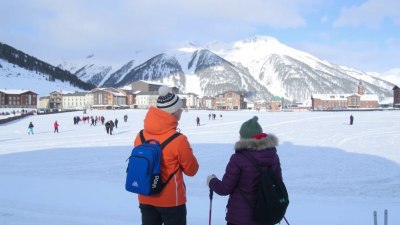What to Do If You Lose Your Passport Abroad
Essential steps to take if you lose your passport while traveling internationally.

Losing your passport while traveling abroad can be a disorienting and stressful experience. It can lead to complications with traveling, identification, and even returning to your home country. However, if you find yourself in this predicament, knowing the proper steps to take can help mitigate the challenges you face. Here is a comprehensive guide on what to do if you lose your passport abroad.
Understand the Importance of Your Passport
Your passport is not just a travel document; it is your identification that verifies your citizenship. It is fundamental for entering and exiting countries and is often required for various activities abroad like currency exchange or engaging with law enforcement. Thus, losing it can create complex situations. Understanding this importance emphasizes why timely and appropriate action is essential.
Stay Calm and Assess Your Situation
The first step after realizing your passport is lost is to stay calm. Panicking will not help and can cloud your judgment. Start by retracing your steps mentally. Think about the last time you remember having your passport. Check your bags, pockets, and specific places where you might have kept it. Sometimes, it is merely misplaced rather than lost.
Report the Loss to Local Authorities
If it seems your passport is indeed lost, you should report it to the local police. The police can file a report of the lost passport, which may be necessary for your home country's embassy or consulate. To file a report, you will likely need to provide identification and details about your passport, including its number, place of issue, and date of issue. Obtain a copy of the police report, as it may be required later during the replacement process.
Contact Your Country's Embassy or Consulate
Your next step should be to contact your country's embassy or consulate. This can typically be done via their website or by phone. Provide them with all the relevant information regarding your lost passport, including the police report number. The embassy will guide you on the necessary procedures and documentation needed to replace your passport. They can also provide emergency travel documents in urgent situations.
Gather Required Documentation
- A completed passport application form.
- Proof of your identity, such as a copy of another form of ID (like a driver's license) or a photocopy of your lost passport if you have one.
- Passport-sized photographs that meet the embassy's requirements.
- A copy of the police report documenting the loss of your passport.
- Any travel itinerary or proof of your travel plans.
- Payment for the passport replacement or emergency document fee.
Ensure you have all the required documentation ready before visiting the embassy or consulate. It helps speed up the replacement process, allowing you to continue your travel with minimal disruption.
Visit the Embassy or Consulate in Person
Once you have all the necessary documents, make plans to visit the embassy or consulate. Be sure to check their hours of operation and if you need an appointment. At the embassy, submit your application for a replacement passport, along with all your gathered documents. The officials may ask additional questions or possibly request more information, so be prepared to provide any necessary explanations.
Follow Up on Your Application
The processing time for a replacement passport can vary based on the embassy's workload, the urgency of your request, and the specific policies of your home country. Ask the embassy staff how long it typically takes to process a replacement passport and inquire about tracking options to follow up on your application. Keep your contact information handy as officials may reach you if additional documentation or verification is needed.
Stay Safe While Waiting for Your Replacement
While waiting for your replacement passport, take extra precautions to secure your remaining identification and travel documents. Maintain a copy of your identification documents in separate locations while traveling. Avoid leaving valuables unattended and be cautious in crowded places. If your passport is lost or stolen, reports of theft may be vital in case you face complications or issues related to your replacement documentation.
Consider Emergency Travel Documents
If you are in a hurry and need to travel soon, inquire about obtaining an emergency travel document from your embassy or consulate. This temporary document may allow you to leave the country or travel back home until your official passport is replaced. Regulations for emergency travel documents vary by country, so understand what they entail and the conditions for use. Ensure you have clarity on any restrictions that might apply with these documents.
Protect Yourself from Identity Theft
Upon realizing your passport is lost, it's important to be vigilant against potential identity theft. If your passport was stolen, consider monitoring your financial and personal information closely. Inform your bank or credit card companies about the loss to prevent unauthorized transactions. In some cases, you may want to place a fraud alert on your credit report, depending on circumstances surrounding your loss.
Plan for Your Departure
Do not forget about your departure plans. Once your passport is replaced, confirm your travel arrangements and itinerary. Check flight schedules, accommodation reservations, and any necessary visas for your travel. It is wise to also have a backup plan should any last-minute issues arise, especially during international travel, where you might encounter additional regulations or requirements based on your destination country. Double-check your travel documents and ensure everything is in order before leaving.
Reflect and Prepare for Future Travels
After dealing with the situation, take some time to reflect on what happened and how you might avoid losing your passport in the future. Adopt preventive measures to keep your passport safe during travels. Consider using passport holders, keeping a digital copy stored securely, or keeping it in a concealed, secure location to make it less likely to get lost or stolen in the first place. Awareness of your surroundings and being organized with your documents can help minimize risks while traveling. Additionally, consider registering your passport details with your embassy before traveling. This can expedite processes if you lose your passport while abroad.
Conclusion: Handling Passport Loss Abroad
In conclusion, losing your passport abroad can undoubtedly be a challenging experience. However, by maintaining composure, knowing which steps to take, and promptly engaging the necessary resources, you can navigate the situation more smoothly. Reporting the loss of your passport, contacting your embassy, gathering the right documentation, and staying vigilant will aid in resolving the issue effectively. Travel safely and responsibly, and safeguard your crucial documents to ensure your international journeys remain enjoyable and hassle-free.











